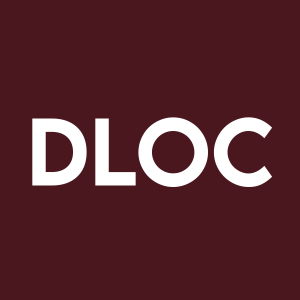Digital Locations CEO Rich Berliner Discussed Direct Message Capability of Indian Regional Satellites with Space Engineer
- The pharmaceutical industry is experiencing a surge in demand for innovative and personalized medicines.
- The company is committed to investing in cutting-edge technologies to drive advancements in healthcare.
- A collaboration with a leading research institution aims to develop a groundbreaking treatment for a rare genetic disorder.
- None.
Insights
Analyzing...
Dr. Althaf Azeez commented about the use of direct messages from NavIC to cell phones to warn communities in advance about natural disasters
SANTA BARBARA, CA, Aug. 10, 2023 (GLOBE NEWSWIRE) -- Digital Locations, Inc. (OTCMKTS:DLOC), the developer of a disruptive technology that will deliver high-speed Internet from satellites directly to smartphones all over the world, today announced that in a recent podcast, its CEO, Rich Berliner, spoke with Dr. Althaf Azeez, a research engineer at Oregon State University, about the use of direct messages from NavIC to cell phones to warn communities in advance about natural disasters.
NavIC, also known as Indian Regional Navigation Satellite System (IRNSS), is designed with a constellation of 7 satellites and a network of ground stations operating 24 x 7. Three satellites of the constellation are placed in geostationary orbit, at 32.5°E, 83°E and 129.5°E respectively, and four satellites are placed in inclined geosynchronous orbit with equatorial crossing of 55°E and 111.75°E respectively, with inclination of 29° (two satellites in each plane). The ground network consists of control center, precise timing facility, range and integrity monitoring stations and two-way ranging stations. NavIC SPS signals are interoperable with the other global navigation satellite system (GNSS) signals namely GPS, Glonass, Galileo and BeiDou
Dr. Azeez commented, “The NavIC system features an internal messaging system where from the Met (Meteorological) satellites, a control center can know where the cyclone is, and it can upload that information to all the seven NavIC satellites in orbit.
The NavIC satellites can then beam that information, so anyone with a capable NavIC receiver can receive this information.”
Dr. Azeez also discussed the importance and capabilities of high-speed Internet and data in proliferation of knowledge and how access to such service has become a fundamental human right.
Dr. Althaf Azeez completed most of his higher education in India. After earning his undergraduate degree in Electrical Electronics Engineering, he joined the Indian Institute of Technology, Indore, one of the most prestigious institutions in India, where he graduated in the discipline of astronomy, astrophysics, and space engineering. He then pursued his Masters in control system and instrumentation. Dr. Azeez later completed his Ph.D. in algorithm development for a GNSS system at Oregon State University. This GNSS system is currently in orbit by India / NavIC. He is currently pursuing his postdoctoral research using GNSS for threat forecasting and monitoring. His goal is to develop a system that can warn communities in times of rising tides. Dr. Azeez is listed as a Google Scholar at https://scholar.google.com/scholar?q=Althaf+Azeez+
This podcast can be viewed at https://www.youtube.com/watch?v=xK--lwWzSgc
About Digital Locations, Inc.
Digital Locations, Inc., is the developer of a disruptive technology that will deliver high-speed Internet from satellites directly to smartphones all over the world. Today, high-speed Internet (also known as broadband Internet) is only available in densely populated areas around the world. The rest of the world is still waiting. Elon Musk (SpaceX), Jeff Bezos (Blue Origin) and others are launching thousands of Low Earth Orbit (LEO) satellites. Unfortunately, without the use of additional equipment, the technology does not yet exist that will allow these satellites to deliver high-speed Internet directly to smartphones. Solving this problem represents an extraordinary business opportunity. Working with a research team from Florida International University, we are developing a truly disruptive technology that will finally make it possible for the wireless industry to offer high-speed Internet service from satellites directly to smartphones anywhere in the world, indoors and outdoors with no dead zones and no cell towers. Anyone, anywhere, regardless of location, economic status, race or gender will be able to access high-speed Internet service and benefit from remote learning, health care, government services, telework, participation in public affairs and even Netflix, Amazon and much, much more.
To learn more about Digital Locations please visit www.digitallocations.com
Safe Harbor Statement
This press release may contain “forward-looking statements.” Forward-looking statements are neither historical facts nor assurances of future performance. Instead, they are based only on our current beliefs, expectations, and assumptions regarding the future of our business, future plans and strategies, projections, anticipated events and trends, the economy and other future conditions. Because forward-looking statements relate to the future, they are subject to inherent uncertainties, risks and changes in circumstances that are difficult to predict and many of which are outside of our control. Our actual results and financial condition may differ materially from those indicated in the forward-looking statements. Therefore, you should not rely on any of these forward-looking statements. Any forward-looking statement made by us in this release is based only on information currently available to us and speaks only as of the date on which it is made. We undertake no obligation to publicly update any forward-looking statement, whether written or oral, that may be made from time to time, whether as a result of new information, future developments or otherwise, except as may be required under applicable law.
Press Contact:
communications@digitallocations.com
(805) 456-7000








